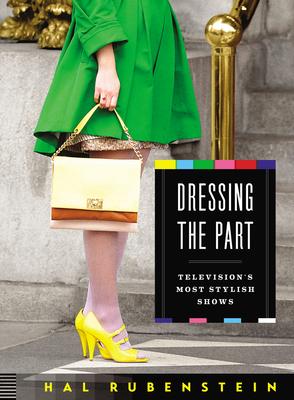From longtime fashion director, consultant, media personality, and author, Hal Rubenstein, comes a lush, full color, illustrated guide to the most influential fashion on television from the 1950s to today, revealing the surprising ways our favorite shows have significantly reflected and often shaped the way we dress.
No other medium has shaped our lives as thoroughly and consistently as television. Since its advent in the 1950s, television has served as a portal for discovering culture, initiating trends, and altering shared perceptions. Yet as Hal Rubenstein contends, television has done much more; its most dramatic, lasting, and effective influence can be found in our closets. Our most popular and lasting fashion trends and hallmarks of personal style haven't come from runways or magazines, but from what's on TV. For decades television has served as a personal stylist, showing us how others dress and defining what we should be wearing.
From Mary Tyler Moore's capri pants on The Dick van Dyke Show and Emma Peel's dominatrix jumpsuit on The Avengers to Olivia Pope's trademark white trench on Scandal and Don Drapers' grey sharkskin suits on Mad Men Dressing the Part is a rich history of popular American fashion and culture in the modern age. In this gorgeous compendium, the longtime fashion director and expert identifies the most stylish television shows of the past 70 years, highlighting the ways they have affected and often inspired ordinary Americans' wardrobes. Combining his decades of fashion expertise and insider knowledge with lush photographs, archival sketches, fascinating interviews with over two dozen of television's best costume designers, commentary from showrunners and co-stars, and little-known backstories, Rubenstein reveals with insight and wit how television has shaped everyday fashion, guiding and often elevating how we dress.
Illustrated with over 175 gorgeous, full-color photographs, Dressing the Part is an extraordinary survey of our most beloved shows and their most enduring impact on style, shining a spotlight on the most innate human characteristics of all--how we imitate and then adapt what we enjoy seeing on others.
